
Sharon Oosthoek is a freelance science journalist who lives in Toronto, Canada. She has written about how bed bugs have favorite colors, why your shoelaces untie themselves and how chicken cologne can protect you from malaria.
She likes writing for young readers. They ask good questions, like how do scientists know the Earth is warming?
Sharon also writes for adults. Her articles have appeared in New Scientist, Canadian Geographic, Maclean’s, The Globe and Mail, cbc.ca and Chemical & Engineering News. She is the winner of an American Academy for the Advancement of Science Kavli Science Journalism Award for children’s science writing.

All Stories by Sharon Oosthoek
-
 Brain
BrainIQ is in the genes
Previous research that suggested parenting affects a child’s IQ is flawed, researchers now conclude.
-
 Climate
ClimateWorld leaders call for action on climate change
This week, the presidents of China and the United States pledged to take aggressive action on the release of greenhouse gases to head off dire worldwide climate effects.
-
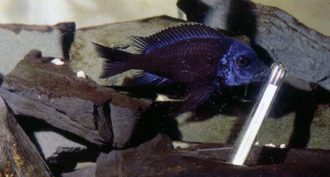 Animals
AnimalsFish just wanna have fun
Although biologists have observed fish playing before, scientists have now recorded hours of video showing a new type of antic in fish.
-
 Animals
AnimalsSharks’ super sniffers at risk
Rising ocean acidity could rob sharks of their ability to sniff out dinner, marine biologists find.
-
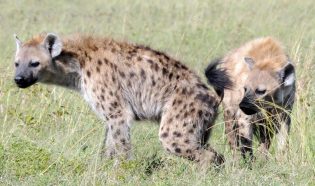 Animals
AnimalsGerms explain some animal behaviors
The bacteria that people and other animals host in and on their bodies are invisible to the eye. Yet they can play a very visible role in behavior. It’s something scientists are just coming to appreciate.
-
 Tech
TechBiometrics: New IDs that are uniquely you
Fingerprints are so last century. Computers soon may start identifying people by their eyebrows, heartbeats or even networks of blood vessels under the skin.
-
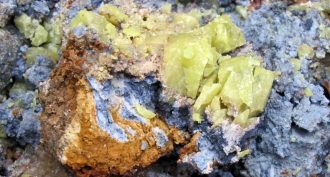 Health & Medicine
Health & MedicineClay: A new way to fight germs?
Geologists have discovered a type of volcanic clay that shows promise in fighting infections — maybe even ones resistant to antibiotic medicines.
-
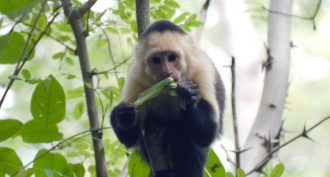 Animals
AnimalsBugs may have made us brainy
Finding and eating bugs when other food was scarce helped primates — including our ancestors — evolve bigger and better brains. At least that’s the conclusion of a new study in Costa Rica.
-
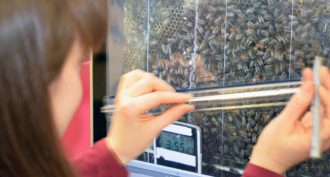 Animals
AnimalsDecoding bee dances
Biologists have started eavesdropping on bees — or their dancing sign language — to identify where these buzzers prefer to forage. This info is pointing to which bee-friendly habitats may be most important to preserve.
-
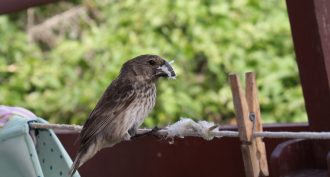 Animals
AnimalsHelping birds doctor their babies
Darwin’s finches will soften their nests by weaving in fibers, such as stray bits of cotton. An observant biologist offered those birds some insecticide-treated cotton and the birds took it, which saved their young from deadly parasites.
-
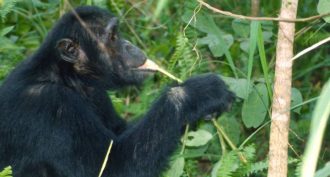 Animals
AnimalsWild medicine
Few veterinarians are available to treat sick animals in their natural environment. Fortunately, some critters can doctor themselves.
-
 Environment
EnvironmentUnconventional spill
An accidental spill of extra-heavy crude oil points to some unusual challenges in safely getting this petroleum to market.